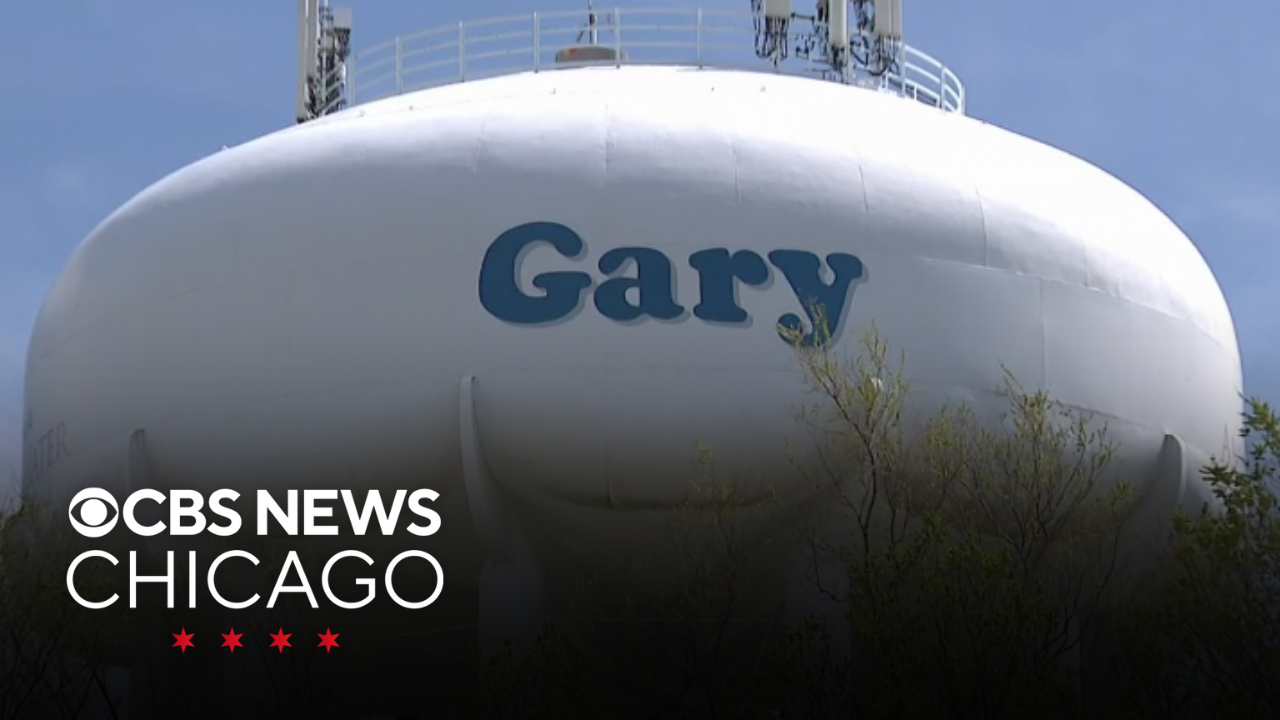With U.S. Steel sale to Nippon Steel advancing, advocates want to see plan to curb pollution in Gary, Indiana
President Trump last week cleared plans for the Japanese company Nippon Steel to buy into U.S. Steel as a partnership.
The president on Friday signed an that says Nippon can buy the iconic Pittsburgh-based steelmaker as long as both parties sign a "national security agreement." The two companies Friday that they agreed to the terms of the government's national security agreement, which they said mandates $11 billion in new investments by 2028 and provides for "a Golden Share to be issued to the U.S. Government."
No specifics have been released yet.
Gary, Indiana Mayor Eddie Melton has said Nippon Steel plans to pump $1 billion into the U.S. Steel Gary Works — the largest U.S. Steel mill in the country. CBS News Chicago has uncovered significant industrial pollution in Northwest Indiana leading to health impacts on those living in Gary.
So will the partnership and the planned investment in the Gary mill translate into healthier air?
Mayor Melton said he is in direct communication with U.S. Steel and Nippon Steel — but it is unclear how the $1 billion the city will see will break down.
"We are waiting for final specific details," Melton said.
But Melton said they have already discussed environmental concerns with both companies.
"The last time the chairman was in Gary, I brought in members of GARD, which is our environmental community advocacy group, to meet with them briefly," Melton said. "Although it was only a few minutes still gave an idea of the concerns the community has historically when it comes down to environmental impacts."
Carolyn McGrady is part of that environmental community advocacy group. The initials stand for
"People know they're sick. They know they're getting sick," said McGrady. "They know their relatives, their children have asthma."
McGrady is also part of an even larger group of residents calling for the Nippon Steel investment to address the health impact of this plant and others on those living here. They hope the merger means moving away from coal-powered steelmaking.
"And so we think it only makes sense to move into the next stage of steel making, which is to produce steel without the blast furnace," McGrady said, "the blast furnace being the evil eye here."
A months-long investigation by CBS News Chicago found that the Gary U.S. Steel plant released more pollutants than any other steel or iron mill tracked by the U.S. Environmental Protection Agency across the country.
"No one ever put the story together the way you did. With the sources and the research you did. And testimonials," said McGrady.
Hilary Lewis, steel director at the environmental nonprofit , said with the merger, it is clear that Nippon Steel and U.S. Steel need to be asked to clean up steel facilities and held accountable on the matter. But her organization wants to know more about the plan for Gary.
"We need to see, in writing, what this plan means for workers and for communities," Lewis said. "Communities that live near these facilities need to know what this deal means for the plants in their backyards."
Industrious Labs recently released a report detailing pollution and the health costs in Gary.
"Gary Works, alone, is responsible for over 30,000 cases of asthma symptoms every year," Lewis said.
Lewis said Industrious Labs is one of a number of groups waiting for more details on the merger, and what will be addressed when it comes to pollution in Gary.
"Within three miles of the Gary Works facility, 97% of people are people of color, and 62% are low-income," Lewis said.
Melton said there is no timeline in place yet.
"What had been promised to me in terms of communication, open lines, between Nippon, U.S. Steel, and myself," Melton said.
CBS News Chicago reached out to both Nippon Steel and U.S. Steel. They did not immediately return requests for comment.




